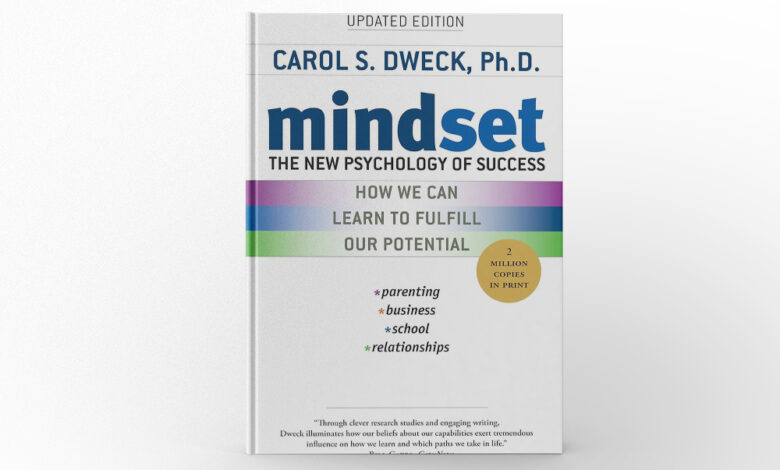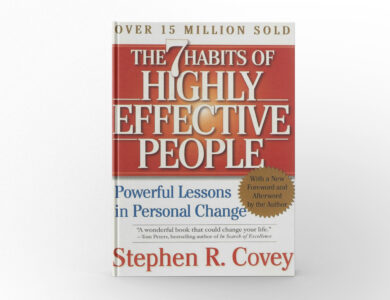Mindset: The New Psychology of Success by Carol S. Dweck
Unlocking Potential: “Mindset: The New Psychology of Success” by Carol S. Dweck

“Mindset: The New Psychology of Success by Carol S. Dweck” is a transformative book that explores how our beliefs about our abilities can profoundly impact our lives. Dweck, a renowned psychologist, introduces the concept of two mindsets: the fixed mindset and the growth mindset. Through compelling research and real-life examples, she demonstrates how adopting a growth mindset can lead to greater achievement and personal development. This article delves into the book’s content, themes, and the author’s background, providing a comprehensive overview of why “Mindset” is an essential read for anyone looking to unlock their full potential.
Author’s Background
Carol S. Dweck is a distinguished psychologist and professor at Stanford University, known for her groundbreaking research in the field of motivation and personality. Born in 1946, Dweck earned her Ph.D. from Yale University and has held teaching positions at Columbia University, Harvard University, and the University of Illinois. Her work has earned her numerous accolades, including membership in the American Academy of Arts and Sciences. Dweck’s research focuses on how beliefs about intelligence and ability influence motivation and success. Her concept of the growth mindset has revolutionized the way educators, parents, and leaders approach learning and development.
In-Depth Summary
“Mindset: The New Psychology of Success by Carol S. Dweck” is structured around the central idea that our mindset—the beliefs we hold about our abilities—plays a crucial role in determining our success. The book is divided into several sections, each exploring different aspects of the fixed and growth mindsets.
1. The Two Mindsets:
Dweck begins by defining the fixed mindset and the growth mindset. People with a fixed mindset believe that their abilities and intelligence are static traits that cannot be changed. They often feel the need to prove themselves and avoid challenges that might expose their perceived limitations. In contrast, individuals with a growth mindset believe that their abilities can be developed through effort, learning, and persistence. They view challenges as opportunities for growth and are more resilient in the face of setbacks.
2. The Power of Belief:
This section delves into the profound impact that our beliefs about our abilities can have on our lives. Dweck presents compelling research showing that individuals with a growth mindset are more likely to achieve success in various domains, including education, sports, and business. She explains how a growth mindset fosters a love of learning, a willingness to take risks, and a greater capacity for resilience.
3. The Role of Effort:
Dweck emphasizes the importance of effort in achieving mastery. She argues that talent alone is not enough to achieve success; sustained effort and perseverance are crucial. This section includes inspiring stories of individuals who have achieved remarkable success through hard work and dedication, illustrating the transformative power of a growth mindset.
4. The Impact of Praise:
One of the most influential insights from Dweck’s research is the impact of praise on mindset. She explains that praising children for their intelligence can reinforce a fixed mindset, leading them to avoid challenges and fear failure. In contrast, praising effort and strategies encourages a growth mindset, motivating children to embrace challenges and persist in the face of difficulties. Dweck provides practical advice for parents and educators on how to foster a growth mindset through constructive feedback.
5. Coping with Setbacks:
Dweck explores how individuals with different mindsets respond to setbacks and failures. Those with a fixed mindset often view failure as a reflection of their inherent limitations, leading to feelings of helplessness and discouragement. In contrast, individuals with a growth mindset see failure as an opportunity to learn and improve. Dweck offers strategies for developing resilience and a positive attitude towards setbacks, emphasizing the importance of learning from mistakes.
6. Mindset in Relationships:
The book also examines the role of mindset in relationships. Dweck explains how a fixed mindset can lead to conflicts and misunderstandings, as individuals may feel threatened by criticism or differences. In contrast, a growth mindset fosters open communication, empathy, and a willingness to work through challenges together. Dweck provides examples of how adopting a growth mindset can improve relationships and promote mutual growth.
7. Mindset in Organizations:
Dweck extends her analysis to the organizational level, exploring how the mindsets of leaders and employees can shape the culture and success of a company. She presents case studies of organizations that have thrived by fostering a growth mindset, highlighting the importance of encouraging innovation, collaboration, and continuous learning. Dweck offers practical advice for leaders on how to cultivate a growth mindset within their teams and organizations.
8. Cultivating a Growth Mindset:
In the final section, Dweck provides practical strategies for developing a growth mindset. She emphasizes the importance of self-awareness, encouraging readers to reflect on their own beliefs and behaviors. Dweck offers exercises and techniques for challenging fixed mindset thoughts and cultivating a growth mindset, empowering readers to unlock their potential and achieve their goals.
Themes and Insights
“Mindset: The New Psychology of Success by Carol S. Dweck” explores several profound themes:
- The Power of Belief: Dweck demonstrates how our beliefs about our abilities can shape our behavior, motivation, and success. She argues that adopting a growth mindset can lead to greater achievement and personal development.
- The Role of Effort: The book emphasizes the importance of effort and perseverance in achieving success. Dweck argues that talent alone is not enough; sustained effort is crucial for mastery.
- The Impact of Praise: Dweck highlights the impact of praise on mindset, showing how praising effort and strategies can foster a growth mindset and motivate individuals to embrace challenges.
- Resilience and Coping with Setbacks: The book explores how individuals with different mindsets respond to setbacks and failures, emphasizing the importance of resilience and learning from mistakes.
- Mindset in Relationships and Organizations: Dweck extends her analysis to relationships and organizations, showing how a growth mindset can improve communication, collaboration, and overall success.
Recommendation
“Mindset: The New Psychology of Success by Carol S. Dweck” is a must-read for anyone interested in personal development, education, and leadership. Its profound insights and practical advice make it accessible to a wide audience, from students and educators to professionals and leaders. The book’s engaging narrative and relatable examples ensure that readers will not only learn but also be inspired to adopt a growth mindset in their own lives. Dweck’s work provides a powerful framework for achieving greater success and fulfillment.
Conclusion
In “Mindset: The New Psychology of Success by Carol S. Dweck,” readers are invited to explore the transformative power of their beliefs. Dweck’s masterful storytelling and profound insights make this book a powerful and enlightening read. By adopting a growth mindset, individuals can unlock their potential, embrace challenges, and achieve their goals. “Mindset” is a timeless work that continues to resonate with readers, offering valuable lessons on resilience, effort, and the pursuit of meaningful success.




